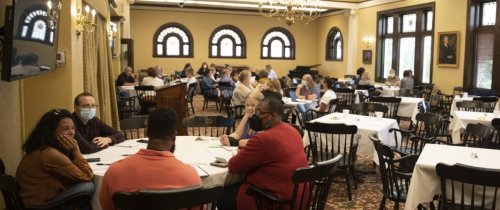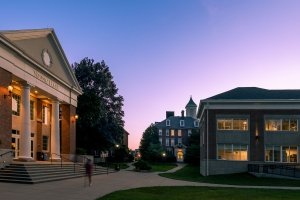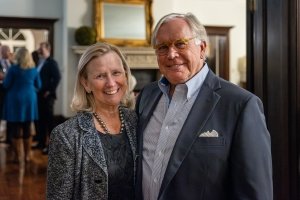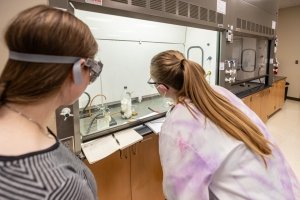
Centre hosts Associated Colleges of the South for Inclusive Pedagogies Institute
The Associated Colleges of the South (ACS) hosted its second Inclusive Pedagogies Institute this summer at Centre College. Eleven ACS institutions were represented during the three-day event, which was funded by the Mellon Foundation and included programming focused on adopting and applying inclusive mindsets.
ACS schools share a commitment to excellence in their joint initiatives, offering rigorous academic programs and focusing on the growth and development of each student.
The workshop had three goals: First, that inclusivity aims to acknowledge that everyone matters at an individual identity level, The second goal was to learn how to better equip students to engage questions about differences, from race to religion. The third and final goal was around the purpose of a liberal arts education and that everyone involved can engage in deeper critical thinking.
Nisha Gupta, Centre’s director of the Center for Teaching and Learning, helped plan and facilitate the event. She said that liberal arts and sciences colleges should be heavily invested in these challenging conversations.
“Part of the mission of a liberal arts college and ACS schools, we’re more interested in engaging in difficult conversations, opening our minds and cultivating critical thinking,” Gupta said. “The classroom is a place where that happens very purposefully. At a place like Centre College, it’s part of the mission of the institution. Creating an environment where difference is celebrated and mutual exchange of ideas happens and lives in the classroom.”
The original Institute was held at the University of Richmond in 2018. ACS President Stephanie Fabritius and Centre Vice President for Diversity, Equity and Inclusion, Andrea Abrams, worked to organize a second institute and host it at Centre. This year’s program at Centre focused on adopting and applying inclusive mindsets.
Abrams and Centre Dean and Vice President for Academic Affairs Ellen Goldey welcomed participants to the campus. University of Louisville professor Cynthia Ganote was the keynote speaker.
Gupta pointed to Ganote’s speech early in the workshop as motivating for everyone involved. Her speech, titled “Inviting All (or Us?) into the Work with Microresistance,” invited attendees to consider the difference between saying “all of us” and “us” when speaking to a group.
“When you say ‘all of us,’ it feels very umbrella-like, covering everything,” Gupta said. “But when you say ‘inviting us,’ it feels more personal, and it feels more like a family.
“She helped people come up with ways they can take action,” she continued. “What are some actions I can take? She walked us through what that might look like, individually in relationships and what we might do in our classrooms. I think that was a pivotal moment for all of us attending the Institute—all of a sudden people were exploding in dialogue and conversation.”
The workshop’s three goals were the focal point of discussions. First, participants looked at identity-level belonging.
“‘You belong’ is a phrase people say, but it’s at the individual identity level,” Gupta said. “Part of adopting an inclusive mindset is saying, ‘I want to acknowledge all students and their differences.’ It could be that they come from another country or another geographic region outside of Kentucky. It could be that they are exploring their gender identity or sexual identity, or how their racial identity comes up. Or they’re just bringing their perspective. The whole idea is to not try and come up with a composite, we try to see them as an individual.”
Every attendee brought ideas for content or work they could do in their work to be more inclusive, and the goal of the workshop was to help better equip them to tackle those ideas.
“Part of it was, ‘how do you want to show up and take action?’ If you feel like someone is not getting treated fairly, not all of us will go march on Frankfort,” Gupta said. “We’re not going to all go and protest. We created a space for that conversation to happen. People are hungry for resources for how to do this or be in conversation with colleagues on how to do this.”



